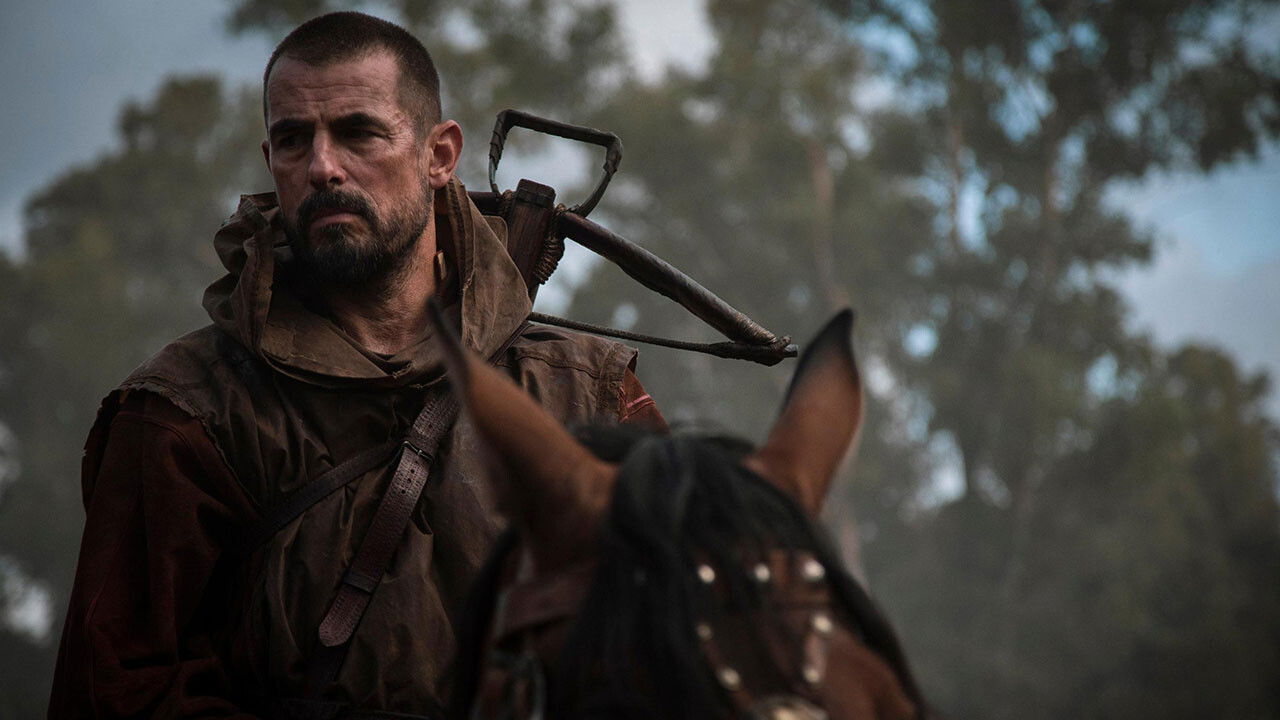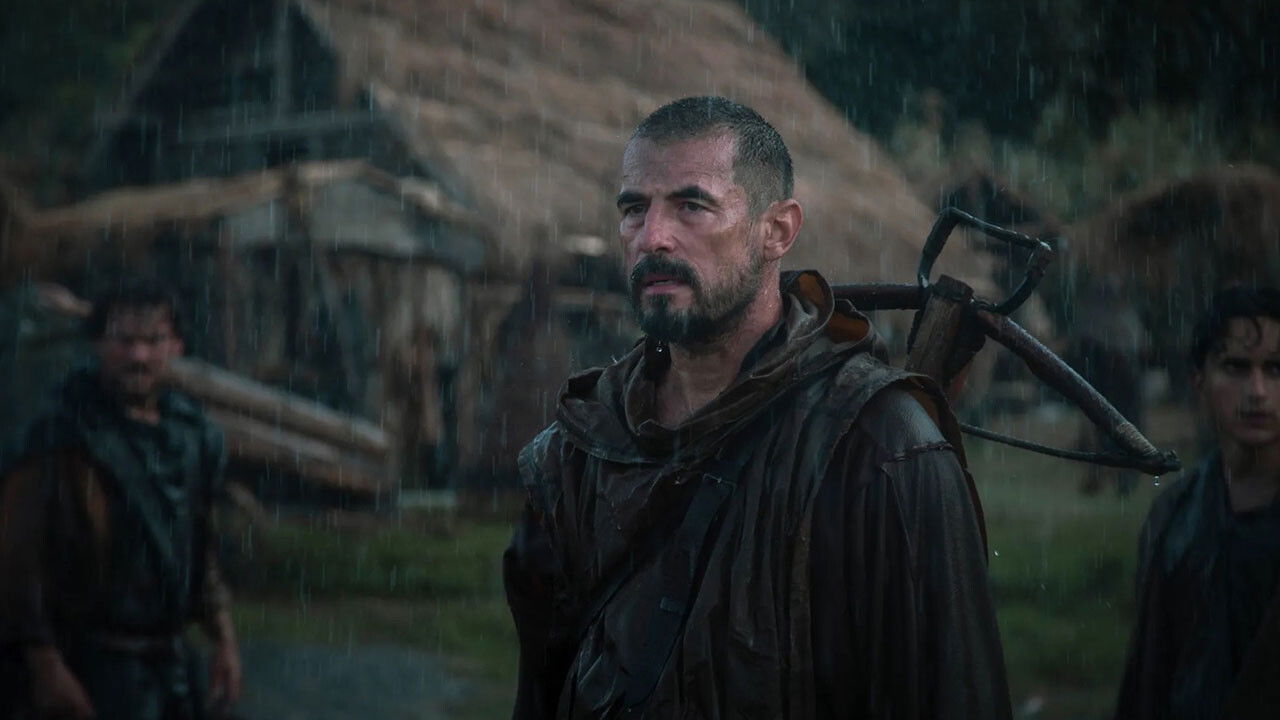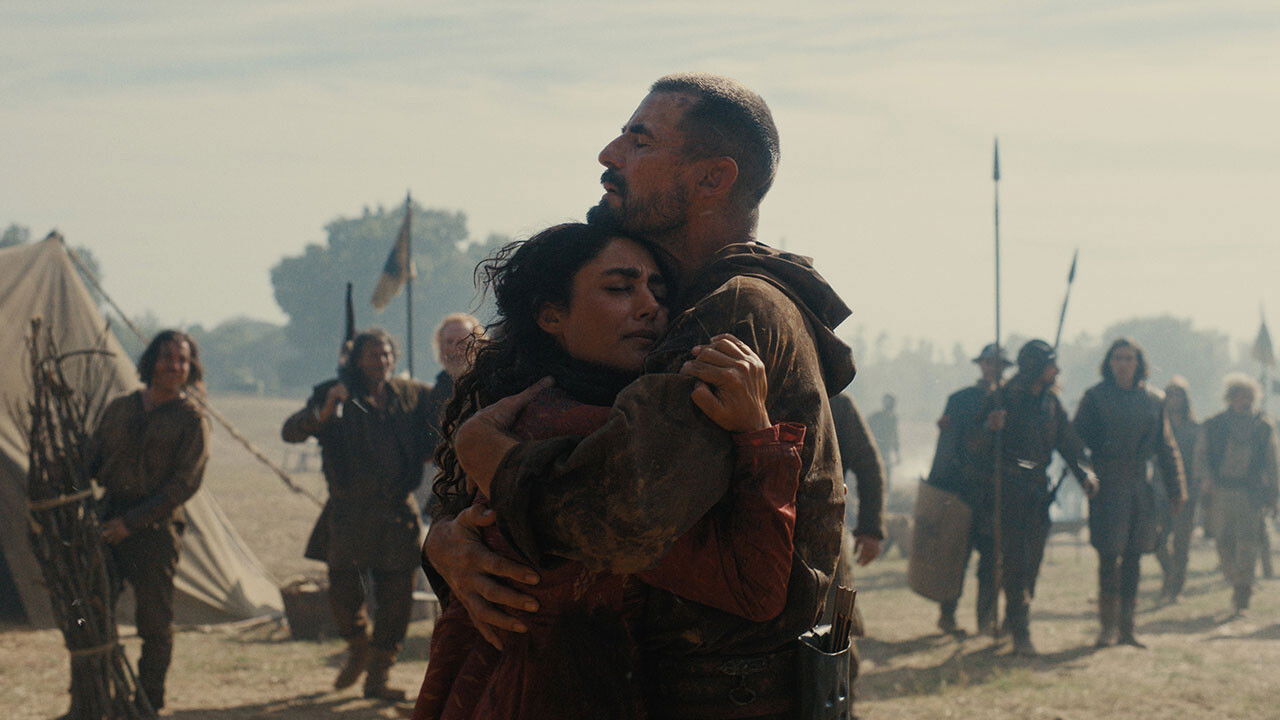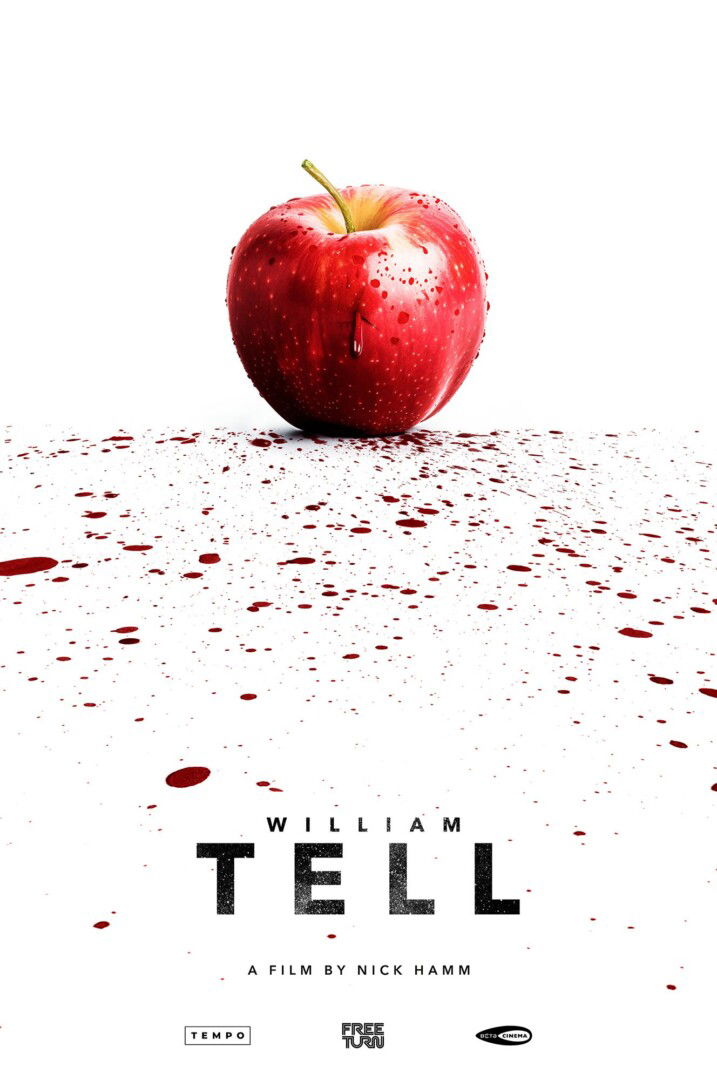Like many who grew up in the ’90s, I have a fondness for period epics. So when I saw the description of William Tell while CGM was planning our TIFF 2024 coverage, I knew I had to give it a watch. The two-hour, 133-minute film brings a nostalgic throwback to the epics that dominated theatres before the turn of the millennium, and for the most part, it works. However, some odd choices and minor nitpicks prevent William Tell from standing alongside the best in the genre.
As a historical epic, William Tell takes the classic folk tale and adds modern elements to the story. Set against the backdrop of Austrian control over Switzerland, the film tells a story of rebellion against overwhelming odds as the Swiss rise up against their oppressive rulers. William Tell (Claes Bang) is living a peaceful life with his wife and son after enduring the horrors of the Crusades.

Tell has found peace, living off the land as a hunter and raising his son to avoid the mistakes he made in his youth. While life is difficult, the people are managing under Austrian rule—until a tax collector is killed. Tell is then drawn into the conflict, urged by all sides to take up his bow once again and strike back at Switzerland’s oppressors.
What begins as a minor dispute quickly escalates into a struggle for the very lives of the Swiss people when Austrian Viceroy Gessler (Connor Swindells) takes it upon himself to not only make the people bend the knee, but to prove just how brutal he can be. His goal is to ensure everyone in the land suffers if they do not comply with his, and the king’s, demands.
Nick Hamm has crafted a film that feels like it was pulled straight from the ’90s, complete with an over-the-top score, flashbacks, and as much exaggerated violence as you can handle. William Tell reportedly cost just under $50 million to make, and Hamm makes the most of that budget. While this film may not compete with the latest offerings from Marvel or DC, it looks as good as, or better than, many of the epics that once drew crowds to theatres, such as Robin Hood, Braveheart, and Elizabeth.
The acting is what you’d expect from a film like this, with most of the cast giving their all and capturing the struggles of a people under an oppressive regime. Claes Bang, as the titular William Tell, does a solid job portraying the stoic and tortured leader of the rebellion, while Ellie Bamber delivers a strong performance as Bertha, the niece of the Austrian king and a believer that Switzerland can find peace and end the atrocities.

Special mention goes to Amar Chadha-Patel, who plays Fürstm, the devious priest masquerading as a holy man until the time is right to strike against the Swiss oppressors. What could have easily been a background role for a plot point is made memorable and engaging by his performance.
Above all, Connor Swindells, as Viceroy Gessler, is mesmerizing in his wickedness. He unquestionably stole the show for me, with each scene he appeared in feeling more bombastic and outlandish than the last. Swindells masterfully balanced the portrayal of a power-hungry and sadistic madman, bringing an unexpected level of excitement to the role. Having seen him in Sex Education, I wouldn’t have thought he had it in him, but I’m impressed and excited to see what he does next.
The rest of the cast was serviceable, delivering just enough to support the historical epic formula but never standing out among the many characters eventually sent to slaughter. As the right-hand man to the murderous viceroy, the performance was suitably conniving, but it didn’t leave a lasting impression.
Despite being one of the film’s biggest stars, Ben Kingsley had only around ten minutes of total screen time as the Austrian king. While he brought gravitas to the role, the brief time on screen ensured that we, as the audience, never got to know him beyond being an existential threat that needed to be overthrown for the Swiss people to live in safety.
Honestly, there’s a lot to like about the film, and it feels like a story worth telling. The characters deliver the classic-sounding dialogue in a believable way, and the action, when it gets underway, is genuinely engaging. However, despite these strengths, William Tell falls victim to being a bit too self-serious for its own good.
Starting in media res, as Tell prepares to shoot an apple off his son’s head with a crossbow, the film’s obsession with his skills as a marksman is overdone. While it may be a key part of the age-old tale, watching everyone in the film marvel at Tell’s crossbow abilities and his attachment to the weapon gets tiresome. It ultimately does little to serve the character. Robin Hood may have had his bow, but that doesn’t mean every fable-based movie needs to focus so heavily on a character’s weapon of choice.
A minor gripe, but the timeline in the film’s narrative bugged me throughout. The opening title card establishes a three-day timeline leading up to the apple scene, but there’s very little time for the events to unfold. Despite this, characters travel great distances, move from city to city, and even journey back to Austria to report on events—all within a matter of hours. This would be impossible with today’s planes and cars, let alone by horse or on foot. It’s a small detail, but knowing this undermined the tension and the timeline set by the film.
Most of these issues can be overlooked when you’re enjoying the movie. What bothered me the most, however, was the blatant sequel bait, teasing an even bigger conflict just over the horizon. I’ve never liked this trend, even though it’s common in all types of films, and more often than not, these teases fail to deliver.
Despite its flaws, William Tell is a fun watch. It takes itself too seriously, has plenty of plot holes, and our titular hero is outclassed by the villain, but you know what? It kind of works. It’s not an amazing film, and it’s a bit too long, but there’s more than enough to make it an enjoyable romp.
I’m not sure if we’re seeing a full return of historical epics, but what I’ve seen so far is promising. William Tell is an interesting film with a strong cast, and despite its many issues, the battles, concept, and visual appeal make it worth the price of admission. I doubt William Tell will kick off a franchise or cinematic universe, but even if it’s a one-and-done experience, it’s well worth your time.
Check out more of CGMagazine’s TIFF 2024 coverage here throughout the festival.





